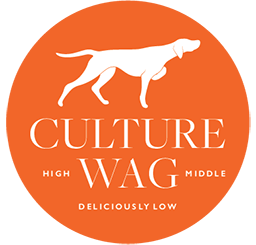Bethanne’s BookWag
Dear Wags,
Sometimes, your Book Wag lapses into little screeds about the changing publishing industry. But this week, as I dashed off a memo to one of my manuscript writing clients, I got to thinking about how audio production is altering writing itself.
Hear me out (pun intended). The audiobook market has become enormously influential. I know many lovely people who won’t crack a book, but are thrilled to listen to one. That’s not all bad. It’s probably opening up a universe of literature to new audiences, including folks with learning differences.
Anyhow, as I compiled notes for this client, I thought about how their manuscript would sound in audio. I urged the writer to read the entire project aloud before sending it to an agent, a step many authors routinely take. When you hear your words, you catch mistakes, get fresh perspective on pacing, and discern whether dialogue rings true or is stilted. The practice infuses writing with new life.
Not surprisingly, some writers now compose work with audio in mind, viewing traditional readers as their secondary market. New media always changes literature. Charles Dickens took advantage of daily newspapers to serialize his stories, which he drew out to goose suspense and profits. After all, he was getting paid by the word.
You can try to confine storytelling to one platform or another, but it has a habit of jumping guardrails. Years ago, I tried to interest colleagues in setting up a future bookstore exposition. I imagined a space with interactive kiosks where customers could sample recorded books, engage with covers, and more. Let’s just say it didn’t catch fire.
Maybe that was a good thing, but I still want today’s writers to consider how their stories can reach as many people as possible. Do we believe the readers of the future will care more about storytelling or the technologies that deliver it? Media transformation is inevitable and unsettling, but keep the faith. Platforms change, but great narratives are eternal.
Yours Ever,
BKP
Daughter of the Dragon by Yunte Huang
Huang, a Guggenheim fellow, wrote an award-winning biography of Charlie Chan. His latest examines the legacy of Chinese American movie star Anna May Wong, who bumped up against racism and sexism during Hollywood’s Golden Age. Wong lost leading roles because interracial kissing was forbidden in her heyday. That didn’t stop her. Born in L.A.’s Chinatown, she rose to prominence in silent films and became both an icon of Weimar Berlin and the toast of prewar Shanghai. Along the way, she crossed paths with philosopher Walter Benjamin and Marlene Dietrich. Through Wong’s diaries and old interviews, Huang celebrates an American life that could not be defeated by prejudice.
The Continental Affair by Christine Mangan
Henri and Louise are on a train from Belgrade to Istanbul in the early 1960s. They act as if they’re strangers, but actually, he’s been sent to retrieve money she’s stolen from folks back in England. I loved Mangan’s previous novels Tangerine, set in 1950s Morocco, and Palace of the Drowned, which took place in 1960s Venice. Whatever the setting, she deploys a PhD in Gothic literature to marvelous effect. Her new novel captures the glamour and grubbiness of midcentury European trains, pulling you into a smoky, cocktail-swilling world of larceny, flight, and romance.
Wifedom by Anna Funder
If you love George Orwell, pick up Wifedom with this warning: You may wind up hating that Great Man of Letters. Still, you’ll gain a new hero in Orwell’s first wife, Eileen O’Shaughnessy Blair (Orwell’s real name was Eric Arthur Blair). O’Shaughnessy was an Oxford grad with an MA in psychology and an author herself. But she was swallowed up by marriage and her husband’s all-consuming work. She acted as Orwell’s amanuensis, kept house, and coped with his affairs. Funder has not exactly crafted a biography of Eileen Blair here. Instead, she pairs a fascinating woman’s story with an account of her own domestic struggles. Along the way, she uses Blair’s letters to a friend, Norah Symes, to examine what wife meant in her era—and what it may still mean now.
The Art of Libromancy by Josh Cook
In this issue, I waxed about audiobooks. Cook likely takes a dimmer view of them. Never mind: He’s produced a bracing manifesto for the 21st century book lover. A veteran bookseller and co-owner of Porter Square Books in Cambridge, Mass., he makes the case for caring about where your books come from, just as consumers are invested in the origins of coffee, vegetables, and sneakers. When it comes to the ideas contained between their covers, Cook sees reading as a fundamentally political act. After all, books shape our view of the world, and sometimes push us to change it.
Swim Home to the Vanished by Brendan Shay Basham
How could I resist a novel from an author whose bio reads: He lives in Baltimore, where he runs a make-believe café with his wife and dog? A member of the Diné people of the Southwest, Basham draws on his heritage in this debut. After his little brother Kai drowns, Damien flees to a fishing community. There, grief shapes his relationship with Ana Maria, who may have been involved in her daughter’s death. Basham draws from native mythology in a rich yarn involving Ana Maria’s community of brujas (practitioners of ancestral magic). There’s a lot going on in this book, but readers who persevere will discover a major new talent plumbing America’s indigenous roots.






